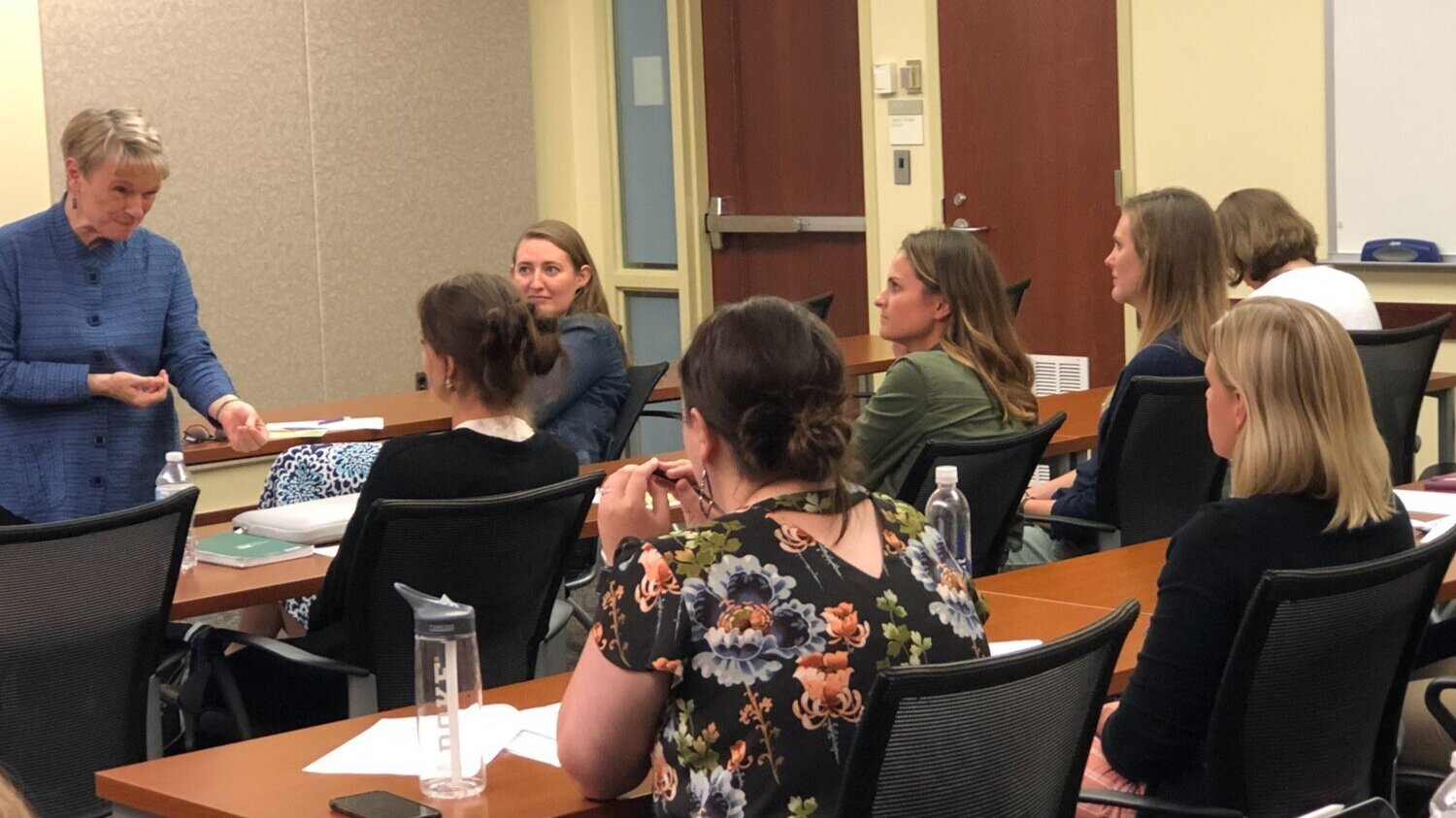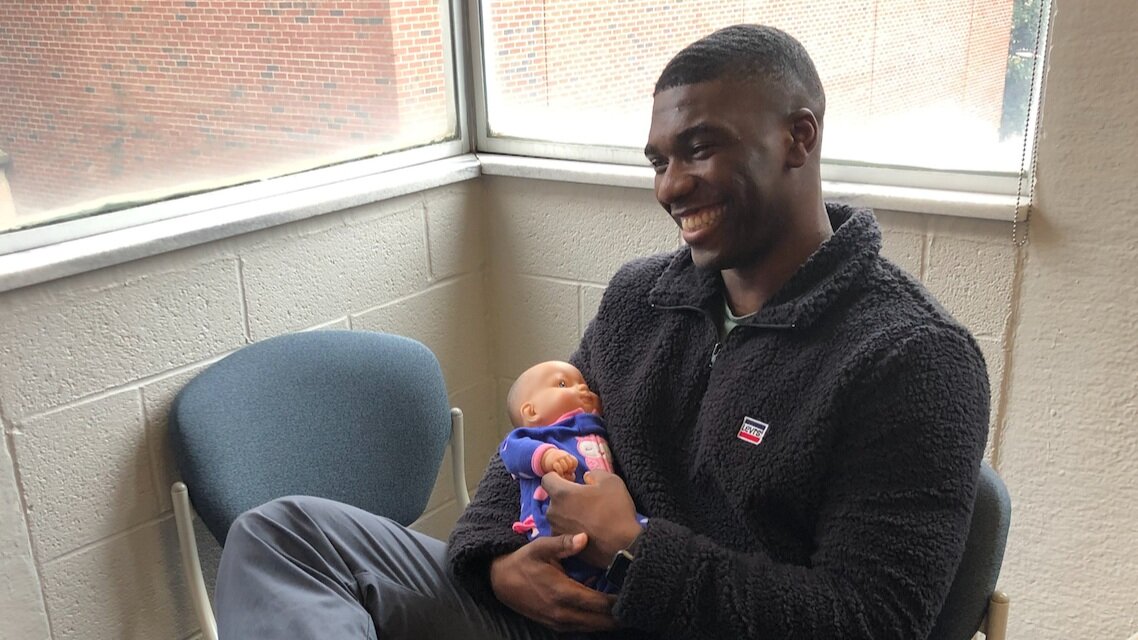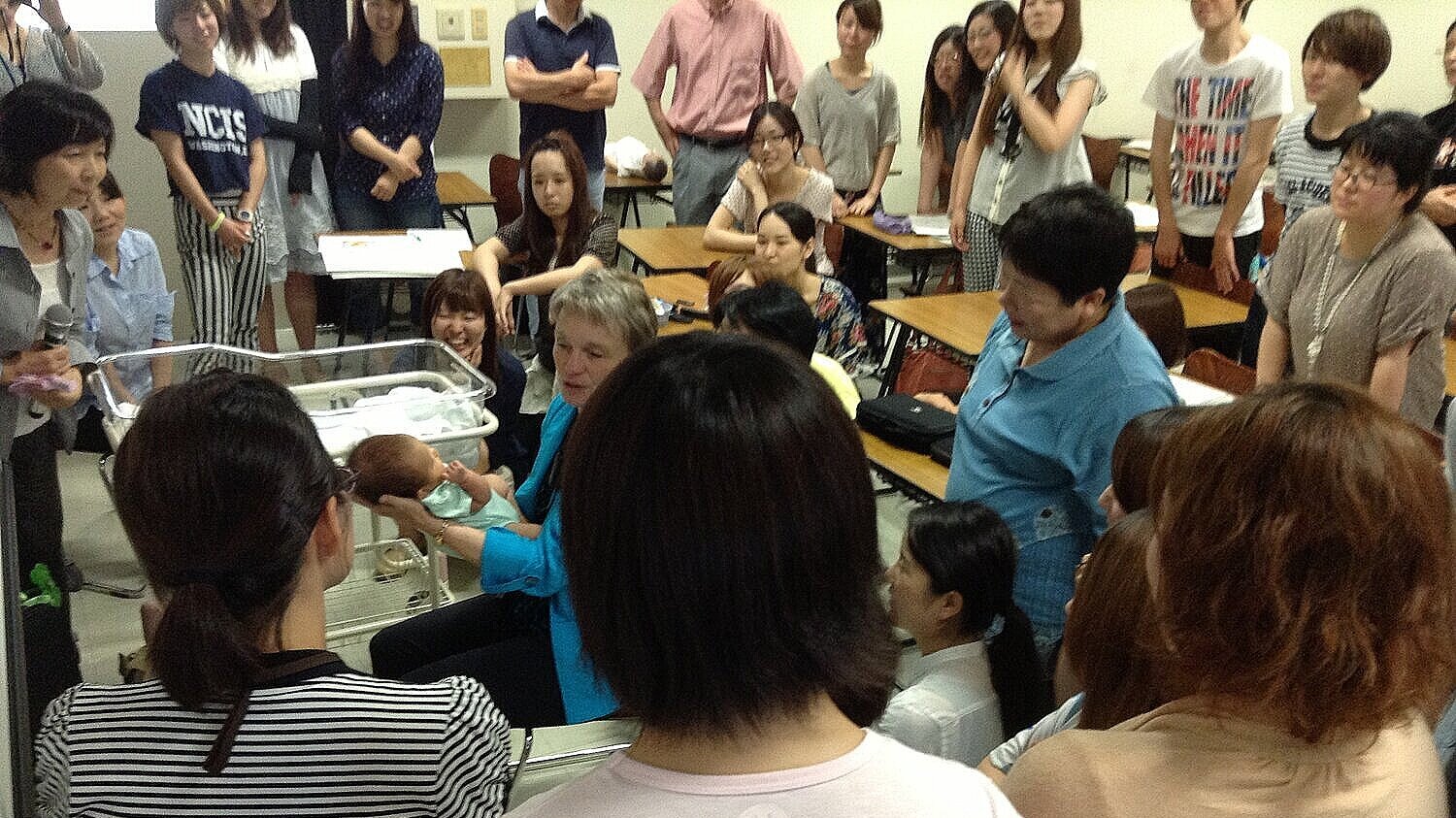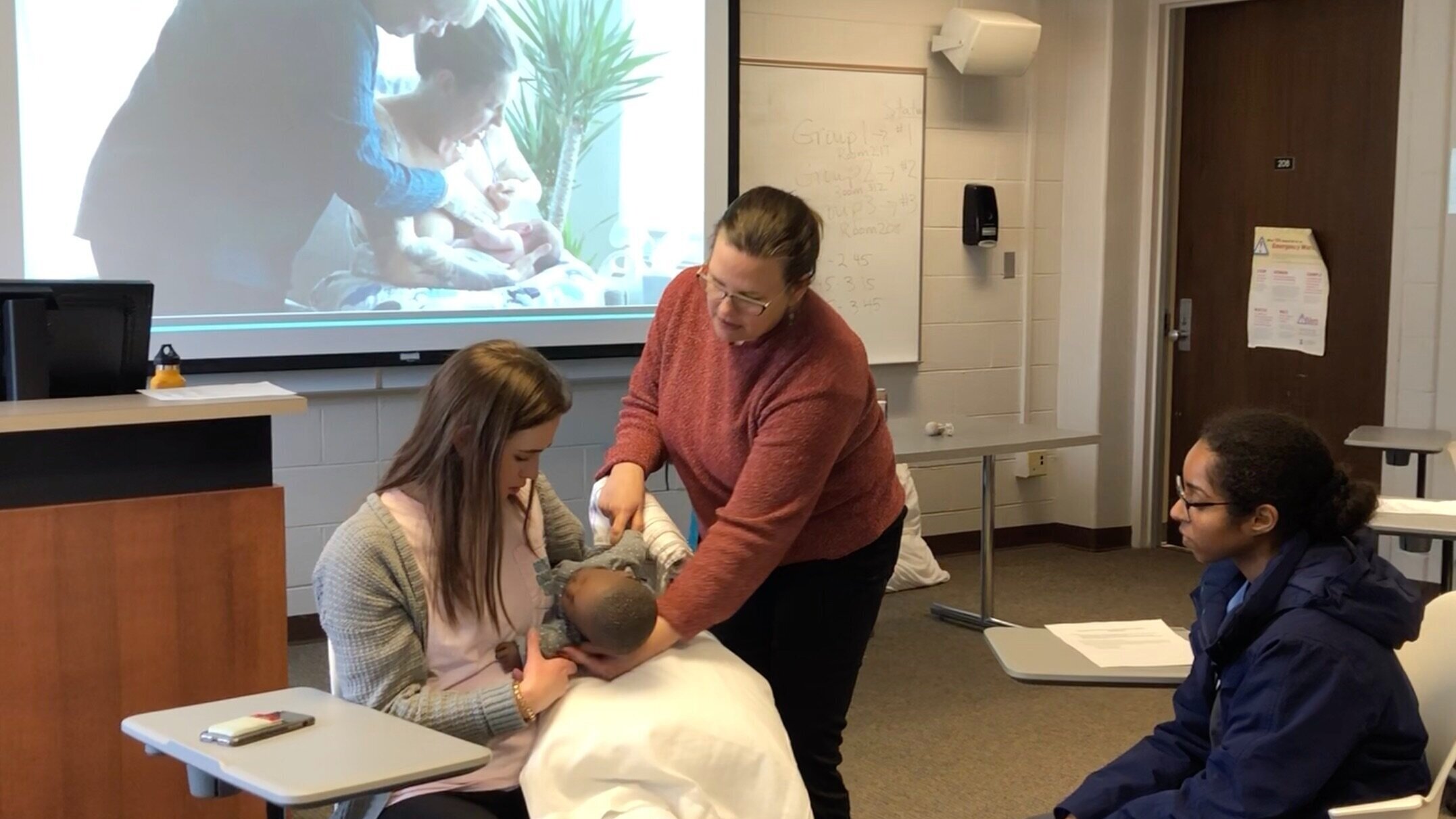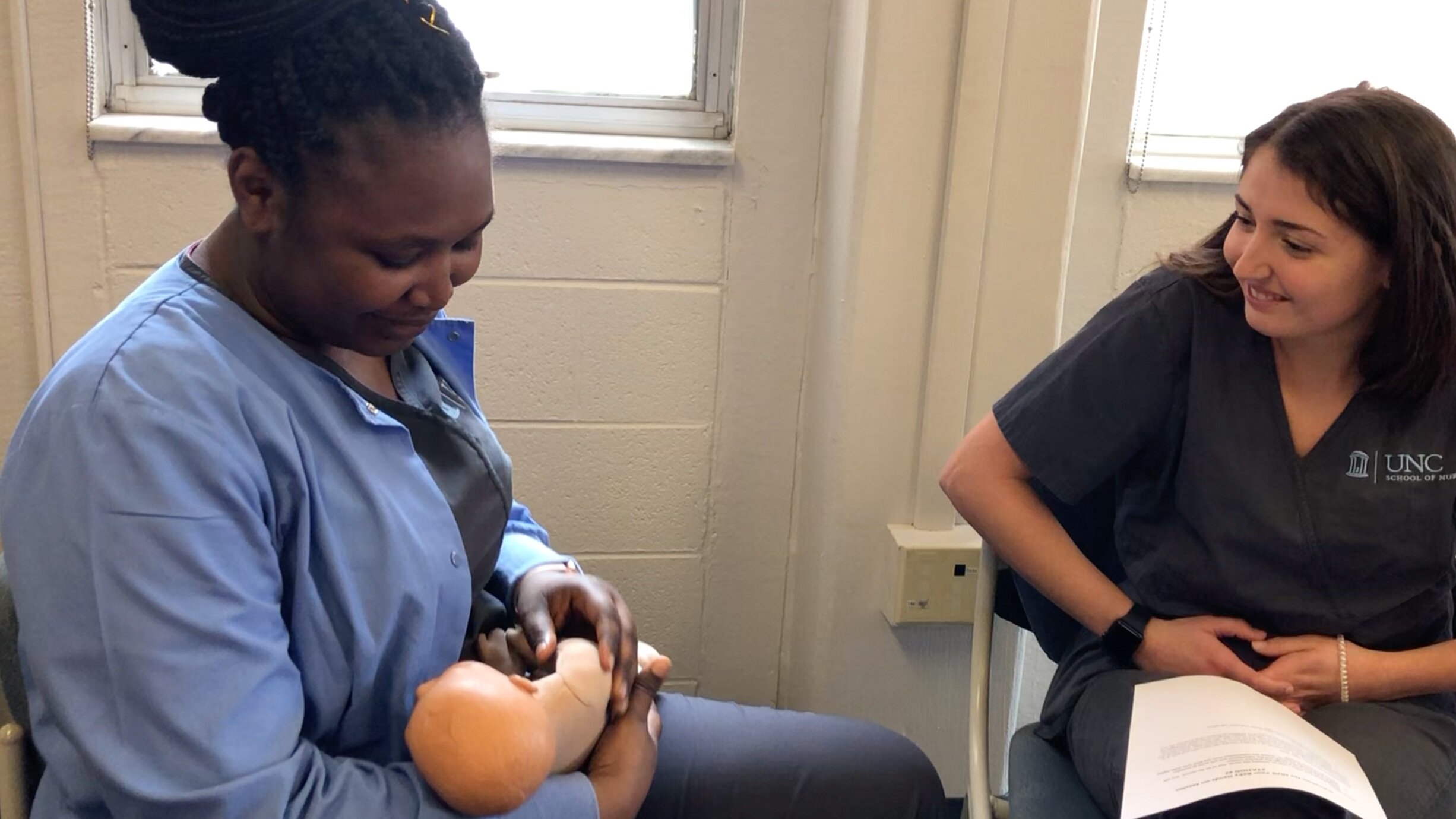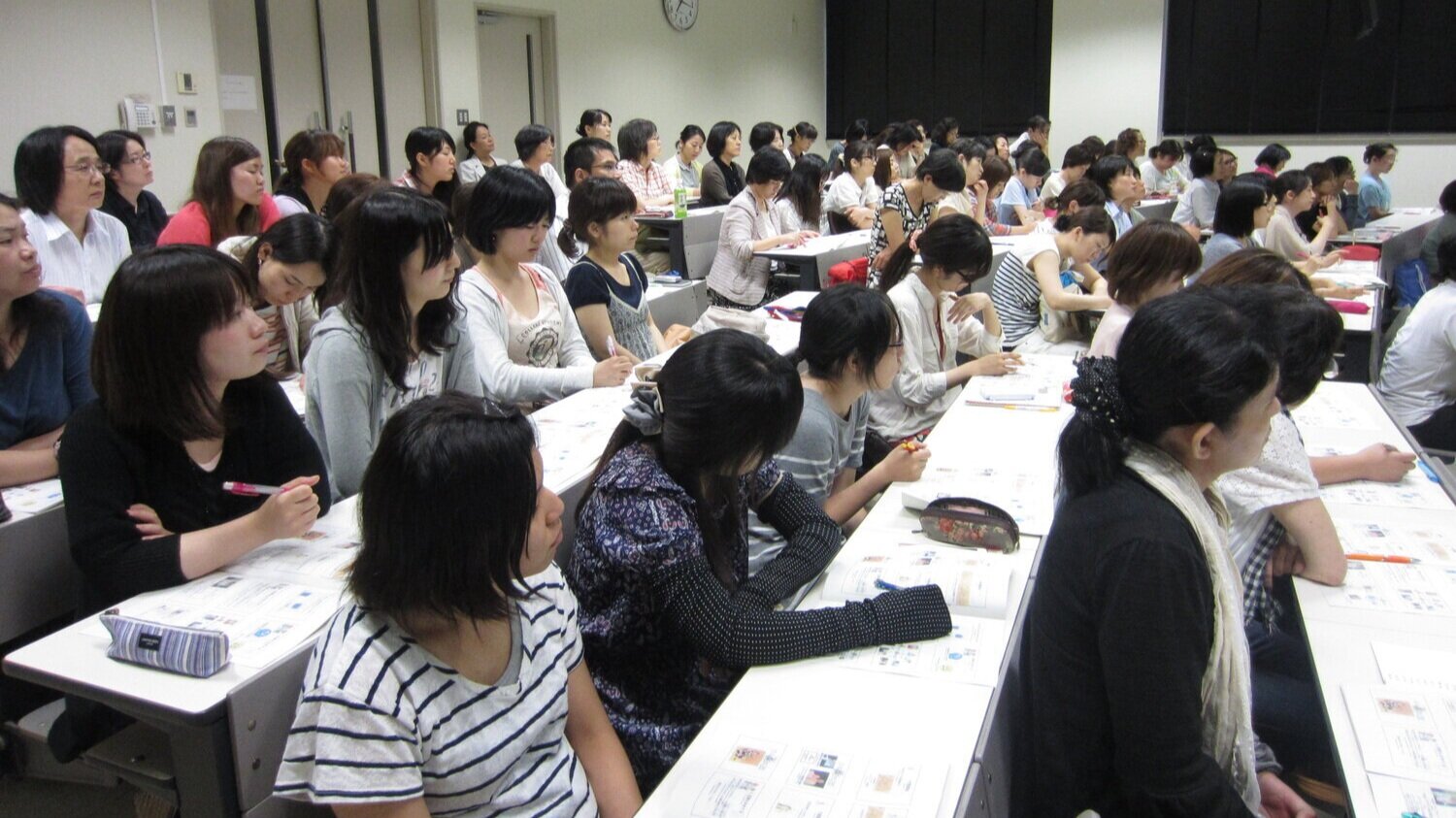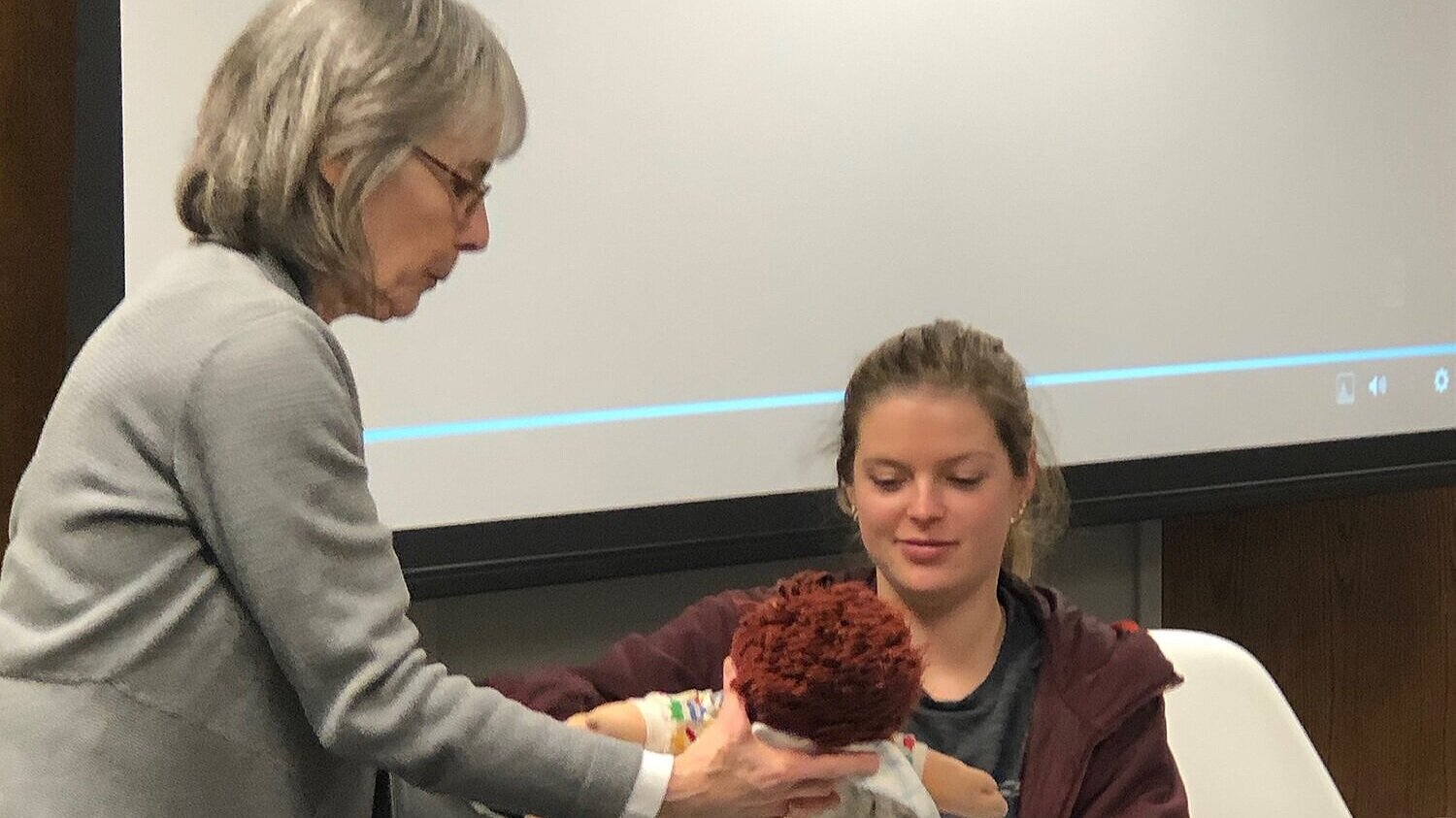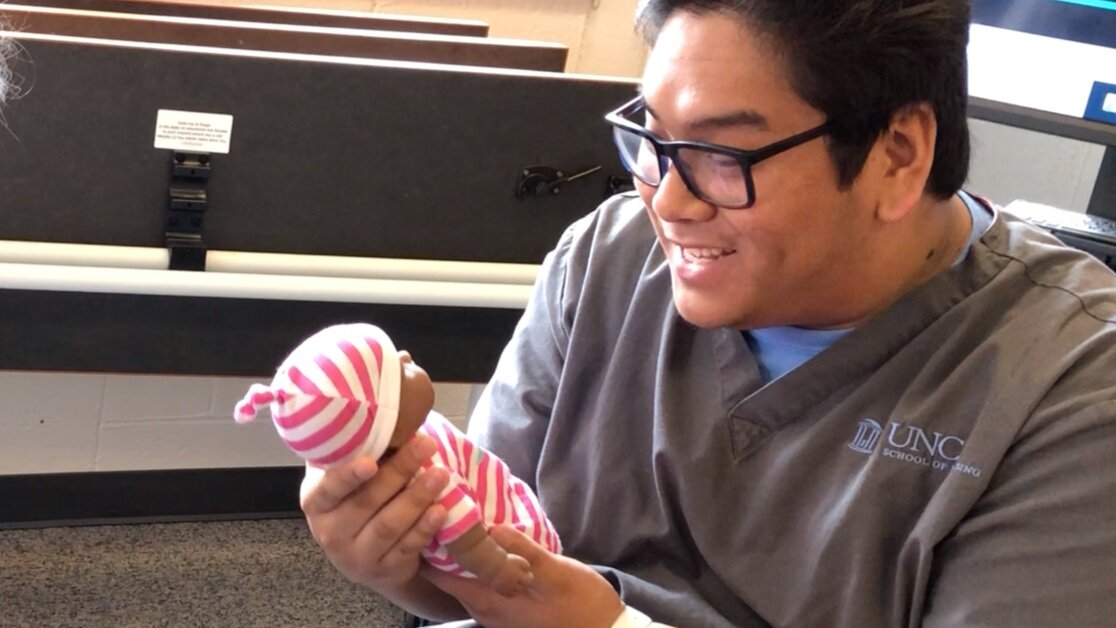Consider benefits of adding “Birth, Breastfeeding and Beyond”, a two-hour digital course to your curriculum.
Watch to learn how our evidence-based, digital course teaches maternity and pediatric nursing students how to counsel parents with babies birth to one year.
Available online or for uploading to school’s LMS
Engaging parent-child videos, inspiring case studies and memorable graphics
Multicultural and inclusive images
Variety of teaching strategies to address diverse learning styles
Pre-/Post-tests and course evaluation data available
Published research and nursing textbook confirm positive impact of HUG Your Baby training and resources for Schools of Nursing and Midwifery
BSN students completing a two-hour virtual HUG Your Baby course demonstrated significant improvement in knowledge about infant behavior and in confidence to teach parents. Heidi Temples, PhD, APRN, IBLCL. Society of Pediatric Nursing Poster Presentation, (2024). Click Here.
APNP students who completed HUG Your Baby’s virtual breastfeeding education during their women’s health or pediatric nurse practitioner curriculum showed significant gains in knowledge and confidence to support breastfeeding regardless of past personal or professional experience. Duke University SON - Malinda Teague, DNP, CPNP and Kathy Trotter, DNP, WHNP, CNM. Jo of Nurse Practitioners, 19 (2), 104468. (2023). Click Here.
East Asian professors of nursing concluded that a HUG Your Baby intervention group showed decreased postpartum depression and increases parent confidence compared to the control group. There were more than 100+ participants in each group. Lead author: Yoko Shimpuku, PhD et al., Women and Birth. 35(5), 4456-463. (2021). Click Here.
Positive impact of integrating HUG Your Baby into a E-learning module for Japanese nurses included: a shift from nurse-centered to parent-centered teaching, inclusion of infant behavior in parent education and enhanced focus on maternal-child bonding. Ota, Y. (2021).Journal of Japanese Academy of Midwifery. Click here for translated abstract provided by Ota.
Undergraduate nursing students taking a two-hour HUG Your Baby online course demonstrated increased knowledge of infant behavior, enhanced confidence to teach parents and would recommend the course to student nurses. Alden, K. (2018). JPE 27[2].) Click Here.
HUG Your Baby is featured in the best-selling maternal/child textbook, Maternal Child Nursing Care. Sixth Edition. Perry, S., Lowdermilk, D., et al (2018). St. Louis, MO: Elsevier. See Chapter 23, “Helping Parents Recognize, Interpret, and Respond to Newborn Behaviors.”
Components of the Japanese HUG Your Baby program, nursing faculty’s positive response to it, and the potential of the HUG Your Baby’ program to improve outcomes for young Japanese families. Shimpuku, Y. and Tedder, J. (2013). Japanese Journal of Nursing Education, 54(12): 1114-1118. Click Here for Translation

